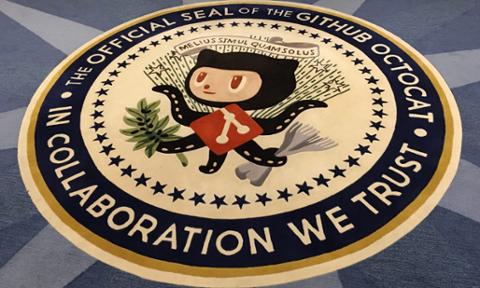[caption id="attachment_140549" align="aligncenter" width="4003"]

GitHub Offices in San Francsico.[/caption] Chances are good that, if you work on your side project at your day job, your employer can claim ownership of the intellectual property that is your app or service. GitHub is hoping to change that with something called ‘
BEIPA.’ Short for "Balanced Employee IP Agreement," BEIPA is already in use internally at GitHub. In short, so long as its employees aren’t pinching too much of GitHub’s
own IP or services for their side projects, GitHub doesn’t mind if they use company time or computers:
If you're a GitHub employee, you maintain control over your creation unless it is something "you create, or help create as its employee or contractor" and it is "related to an existing or prospective Company product or service at the time you developed, invented, or created it" or "developed for use by the Company" or "developed or promoted with existing Company IP or with the Company's endorsement." It doesn't matter whether you've used company equipment or not.
Naturally, BEIPA is meant for open-source projects. It’s not
specific to open source, though. BEIPA leans into open-source so that there’s no tangible ownership, but its goal is to provide a framework for how employers treat the IP of employees. Because
BEIPA itself is open-source, GitHub had to license it. By leveraging Creative Commons Zero Universal, BEIPA can be adopted by any company or individual. It limits GitHub from any liability, patent kerfuffles or trademark issues, and leaves BEIPA open for private use. To that, an employer could modify it to suit their individual needs, or cover a more narrow scope. (An example: if the employer wanted to offer up one technology for free use, but strictly prohibit another for side projects.)

If an employee were simply using a company computer to write a standalone app, their employer might not be inclined to worry, so long as that person remained performant. But if that same employee used proprietary IP, such as a machine learning algorithm, for the same app, the employer might not look kindly on that. Although BEIPA was written for use in the United States, GitHub admits IP regulations vary state-to-state. It also states that BEIPA shadows California’s own IP laws, while going a bit further:
Even within the United States, limits on employer ability to claim all employee-created IP vary. In California the main difference made by BEIPA is that IP developed with company equipment or relating to the company's business, but in an employee's free time and which the employee is not involved in as an employee, is not owned by the company – the employee owns anything done in their free time which does not relate to their work as an employee.
Companies outside of the United States are also free to use BEIPA, though GitHub hasn’t made any effort to appreciate IP laws elsewhere. To be applicable internationally, it may need heavy modification to the legalese, but the concept travels nicely. BEIPA also adheres fairly closely to GitHub’s own culture. The company is based in San Francisco, but has a healthy number of remote employees and a "just get the job done" approach to management. GitHub straddles the line between open-source projects and generating revenue, too, so it’s uniquely aware of potential concerns that may arise from a more relaxed strategy. Yes, maybe it's all a bit out of left field, but BEIPA nonetheless provides a corporate methodology for just plain treating employees like adults. So long as they
don’t steal company secrets and launch a startup with the intended goal of being acquired almost immediately, the balance BEIPA hopes to strike should work well for everyone involved.
 GitHub Offices in San Francsico.[/caption] Chances are good that, if you work on your side project at your day job, your employer can claim ownership of the intellectual property that is your app or service. GitHub is hoping to change that with something called ‘BEIPA.’ Short for "Balanced Employee IP Agreement," BEIPA is already in use internally at GitHub. In short, so long as its employees aren’t pinching too much of GitHub’s own IP or services for their side projects, GitHub doesn’t mind if they use company time or computers:
GitHub Offices in San Francsico.[/caption] Chances are good that, if you work on your side project at your day job, your employer can claim ownership of the intellectual property that is your app or service. GitHub is hoping to change that with something called ‘BEIPA.’ Short for "Balanced Employee IP Agreement," BEIPA is already in use internally at GitHub. In short, so long as its employees aren’t pinching too much of GitHub’s own IP or services for their side projects, GitHub doesn’t mind if they use company time or computers:
 If an employee were simply using a company computer to write a standalone app, their employer might not be inclined to worry, so long as that person remained performant. But if that same employee used proprietary IP, such as a machine learning algorithm, for the same app, the employer might not look kindly on that. Although BEIPA was written for use in the United States, GitHub admits IP regulations vary state-to-state. It also states that BEIPA shadows California’s own IP laws, while going a bit further:
If an employee were simply using a company computer to write a standalone app, their employer might not be inclined to worry, so long as that person remained performant. But if that same employee used proprietary IP, such as a machine learning algorithm, for the same app, the employer might not look kindly on that. Although BEIPA was written for use in the United States, GitHub admits IP regulations vary state-to-state. It also states that BEIPA shadows California’s own IP laws, while going a bit further:


